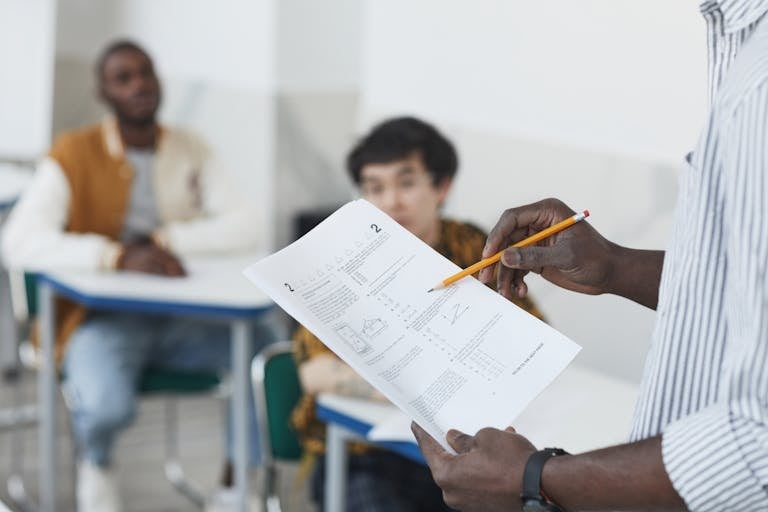Introduction:
The Primary School Leaving Examination (PSLE) is a pivotal moment in the educational journey of every Singaporean child, marking the culmination of their primary school years and laying the groundwork for their secondary education.
As the PSLE approaches, students and parents must be well-informed about the critical dates, examination timetable, and effective strategies for success.
This article will explore these topics further, offering a complete guide to help students confidently navigate the PSLE journey with clarity.
Understanding the PSLE:
Before delving into the specifics, let’s briefly revisit the structure and significance of the PSLE. Designed by the Ministry of Education (MOE), the PSLE assesses students’ proficiency in four key subjects: English, Mathematics, Science, and Mother Tongue languages.
The results of the PSLE not only determine students’ secondary school placements but also serve as a benchmark for measuring academic achievement and readiness for higher-level studies.

Key Dates:
1. Registration Period:
The PSLE registration period typically opens in June and lasts for several weeks. Parents are required to register their child for the examination during this window using the online registration system provided by the MOE. Adhering to the registration deadlines is essential to avoid any complications or delays.
2. Release of Examination Timetable:
Several months before the commencement of the PSLE, the MOE releases the examination timetable, detailing the dates and timing of each paper. This early release allows students to plan their study schedule effectively, allocate sufficient time for revision, and familiarize themselves with the examination format.
3. Examination Dates:
The PSLE is usually conducted over several days in late September or early October. Each subject is allocated a specific date and time slot, and stringent protocols ensure a fair and standardized testing environment. Students must arrive punctually and adhere to all examination regulations to avoid penalties.
4. Release of Results:
After completing the PSLE, students eagerly anticipate the release of their results. Traditionally, PSLE results are announced in late November, providing ample time for students and parents to evaluate their performance and consider their secondary school options.
Regardless of the outcome, it’s essential to approach the results with an open mind and a positive outlook.
Understanding the Timetable:
The PSLE timetable is meticulously crafted to optimize the administration of the examination while minimizing disruptions to students’ regular school routines.
Each subject is allocated a specific time slot, with adequate breaks in between to allow for rest. Furthermore, special arrangements are provided for students with special needs to ensure they receive the support and accommodations necessary during the examination.
Effective Strategies for Success:
1. Start Early:
Start preparing for the PSLE early for ample time to review and practice. Encourage your child to make a regular study schedule and set aside time daily to review things, finish assignments, and do old test papers.
2. Practice Past Papers:
Knowing the PSLE format and the kinds of questions asked can boost confidence and help you do better on exam day. Use past-year papers and practice questions to identify patterns, understand the marking scheme, and pinpoint areas for improvement.
3. Seek support:
Encourage parents, students, and teachers to talk openly so they can deal with any problems or worries during preparation.
Promote open communication among parents, teachers, and students to face any challenges or issues that may arise during preparation.
Consider seeking assistance from tutors or educational resources to provide extra support and guidance in areas in which your child may need help.
4. Maintain a Healthy Balance:
While academic excellence is important, it’s equally crucial to prioritize your child’s overall well-being. Ensure they get adequate rest, exercise, and nutrition throughout the exam to optimize their cognitive function, concentration levels, and emotional resilience.
Conclusion:
Navigating the PSLE journey Supporta is a daunting yet rewarding experience for students and parents.
By staying informed about crucial dates, the examination schedule, and effective strategies for success, you can facilitate a seamless transition and a favourable outcome for your child.
Remember, the PSLE is not just a test of academic knowledge but also a testament to your child’s resilience, determination, and potential for growth.
With dedication, perseverance, and support, they can overcome challenges and emerge stronger and more confident as they embark on the next phase of their educational journey.
FAQs
1. When should my child start preparing for the PSLE?
It’s good to start preparing early, ideally in Primary 5 or sooner. This gives them ample time to review and support what they’ve learned in school.
2. What subjects are tested in the PSLE?
The PSLE tests four main subjects: English, Mathematics, Science, and Mother Tongue languages (like Chinese, Malay, or Tamil). These subjects check how well students understand and can use what they’ve learned.
3. How can I help my child get ready for the PSLE?
You can help by creating a quiet and comfortable study space at home, setting up a regular study schedule, encouraging and supporting your child, and finding extra help, like tutors, if needed. Talking with your child and understanding their needs and worries is important.
4. What if my child gets sick during the PSLE exams?
If your child gets sick during the PSLE exams, let the school know right away and get a medical certificate from a doctor. Depending on the situation, the school might arrange for your child to take the exam later or use other school work to assess their performance.
5. How are PSLE results used to choose a secondary school?
The PSLE results help decide which secondary school your child can go to. Each child gets a score based on their exam results. Different secondary schools have different score requirements.
You and your child can choose the schools you prefer, and the system will try to match your child with one of those schools based on their score and the spaces available.
6. Are there any special considerations for children with learning difficulties or disabilities during the PSLE?
Yes, there are provisions for children with learning difficulties or disabilities. These can include extra time, separate examination venues, or the use of assistive devices.
It’s important to inform the school and submit the necessary documentation well in advance to ensure that your child receives the appropriate support and accommodations during the exams.





